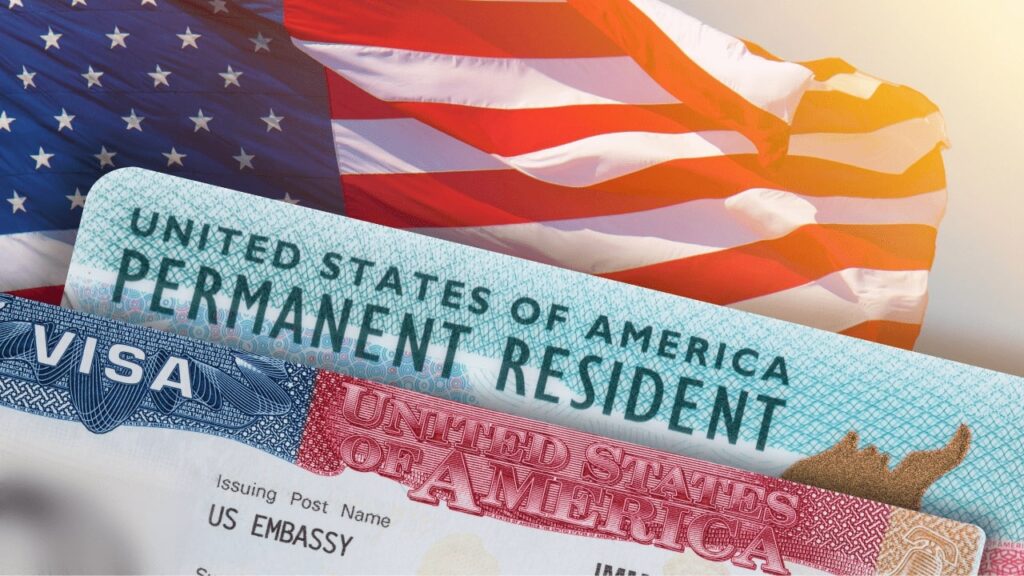Green Card Types: Understanding the Different Paths

For many people around the world, obtaining a green card is a dream come true. A green card, also known as a Permanent Resident Card, allows foreign nationals to live and work in the United States on a permanent basis. There are different types of green cards available, each with its own set of requirements and eligibility criteria. In this article, we will explore the different green card types and help you understand which one may be the best fit for your individual circumstances.
Family-Based Green Cards
The family-based green card is the most common type of green card. It is available to immediate relatives of U.S. citizens, including spouses, parents, and unmarried children under the age of 21. It is also available to certain family members of U.S. permanent residents, such as spouses and unmarried children under the age of 21. Family-based green cards require a petition to be filed by the sponsoring family member, along with evidence of the family relationship and proof of financial support.
Employment-Based Green Card Types
Another common type of green card is the employment-based green card. This type of green card is available to individuals who have a job offer from a U.S. employer and can demonstrate that they possess the necessary qualifications for the position. There are five categories of employment-based green cards, each with its own set of requirements and eligibility criteria. These categories include:
- EB-1: Priority Workers
- EB-2: Professionals with Advanced Degrees or Exceptional Ability
- EB-3: Skilled Workers, Professionals, and Other Workers
- EB-4: Special Immigrants
- EB-5: Immigrant Investors
Each of these categories has different requirements and processing times. For example, the EB-1 category is reserved for individuals with extraordinary abilities in their field, such as Nobel Prize winners or internationally recognized athletes. The EB-5 category is available to individuals who invest at least $900,000 in a U.S. business that creates jobs in a targeted employment area.
Diversity Visa Lottery
The Diversity Visa Lottery, also known as the Green Card Lottery, is a program that provides a limited number of green cards to individuals from countries with historically low rates of immigration to the United States. The program is administered by the U.S. Department of State, and the application process is free of charge. The lottery is open to individuals who meet certain eligibility criteria, such as having a high school diploma or its equivalent and being a native of a qualifying country. The Diversity Visa Lottery is a great option for individuals who do not have a qualifying family member or employer to sponsor them for a green card.
Refugee and Asylee Green Card Types
Refugees and asylees are individuals who have fled their home countries due to persecution or fear of persecution based on their race, religion, nationality, political opinion, or membership in a particular social group. These individuals may be eligible for a green card after one year of being admitted to the United States as a refugee or asylees. Refugee and asylee green cards do not require a sponsor or employer, but they do require evidence of refugee or asylee status and proof of continuous physical presence in the United States.
Special Immigrant Green Card Types
There are several categories of special immigrant green cards that are available to individuals who meet certain eligibility criteria. Some of the most common categories include:
- SIJ: Special Immigrant Juvenile Status, which is available to children who have been abused, neglected, or abandoned by one or both parents.
- VAWA: Violence Against Women Act, which is available to individuals who have been victims of domestic violence and have a qualifying relationship with a U.S. citizen or permanent resident.
- Religious Workers: This category is available to individuals coming to the United States to work in a religious capacity, such as a minister, priest, or nun.
Special immigrant green cards have unique eligibility requirements and processing times and are not available to everyone. However, they can be a great option for individuals who meet the eligibility criteria and do not have a qualifying family member or employer to sponsor them.
Returning Resident Green Cards
If you are a permanent resident who has been outside of the United States for more than a year, you may be able to apply for a returning resident green card. This type of green card allows individuals who have previously been granted permanent residency to return to the United States as permanent residents, even if they have been outside of the country for an extended period of time. To be eligible for a returning resident green card, you must demonstrate that your prolonged absence was due to circumstances beyond your control and that you intend to reside in the United States permanently.
To Sum It Up
Obtaining a green card can be a complex and lengthy process, but it is worth the effort for those who wish to live and work in the United States permanently. Understanding the different green card types is an important first step in determining which path to permanent residency is right for you. Whether you are a family member of a U.S. citizen, a skilled worker, a refugee, or a victim of domestic violence, there may be a green card option that is available to you. By working with an experienced immigration attorney, you can navigate the complex process of applying for a green card and increase your chances of success.
DISCLAIMER: THIS WEBSITE DOES NOT PROVIDE MEDICAL ADVICE
The information, including but not limited to, text, graphics, images, and other material contained on this website is for informational purposes only. No material on this site is intended to be a substitute for professional medical advice, diagnosis, or treatment. Always seek the advice of your physician or other qualified health care provider with any questions you may have regarding a medical condition or treatment before undertaking a new health care regimen, and never disregard professional medical advice or delay in seeking it because of something you have read on this website.








